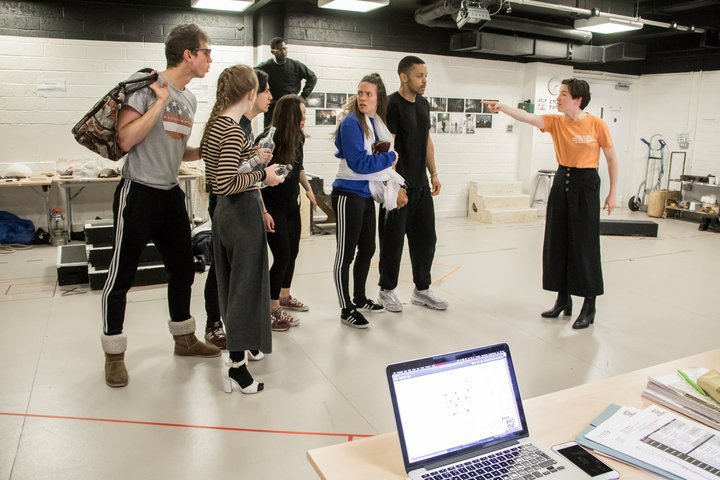Student wellbeing and support at RADA
Tracy Keating, former Head of Student Wellbeing, writes about the support we provide for students throughout their training, and the unique challenges and rewards of working at RADA.
Taking part in an intensive training, whether as an acting or technical student, can be challenging and stressful at times. At RADA, as part of our student and academic support, we offer a Student Wellbeing Service focused on pastoral care and counselling. My role has been to develop this service and to respond to the unique needs of our students, and the day-to-day challenges they face.
There has been a good deal of coverage in the media about young people and mental health, particularly student mental health. Nearly twenty percent of 16-24 year olds in England experience a mental health condition, and mental health conditions account for an increasing amount of all disability disclosed by first year students.*
I believe it is vital that we provide a calm, holding space where students can reflect on the challenges they face, both in their training, and in their wider lives. Students bring their histories and life events with them when they come to RADA. Sometimes these difficulties can be heightened by the demands they encounter in the day-to-day training. Having a space to process past and current challenges, and develop ways of managing them, can make all the difference.
Offering a wellbeing service in a place like RADA presents a few interesting challenges. One of these is the timetable! Our students are in classes, workshops and rehearsals for at least eight hours a day, often longer. We have found ways of working around the students’ schedules so that the support is available when they are. For this reason, our team of counsellors offer sessions in the evenings and on Saturdays. Informal pastoral care is also offered at lunchtimes and in the evenings.
Another challenge is the small size of the academy, and how well everyone knows each other! We hold very clear boundaries around confidentiality. Students understand that we don’t share any information about them without their express permission, unless they are in serious danger. It seems that students trust us to protect their privacy as at least half the student body comes to see us each year.
Delivering support to students in a setting like RADA is a pretty unique experience. The counselling team often share how much they enjoy working with such a dynamic bunch of young people. Our students engage with support and personal development with an openness and gusto that is deeply satisfying for any therapist.
One of the aspects of my role that I find most satisfying is the experience of being part of a community. The academy is a close-knit group of people. Students and staff go through the rigours of each term together. Attending productions, cabarets, carol services, showcase evenings, Prize Fights etc, helps to make working at RADA very special. Witnessing the talent, skill and hard work of these acting and technical students, particularly knowing the significant challenges many of them have faced in their lives, makes for an extraordinarily inspiring and moving experience.
*(Not by Degrees: Improving student mental health in the UK’s universities; IPPR, 2017)

